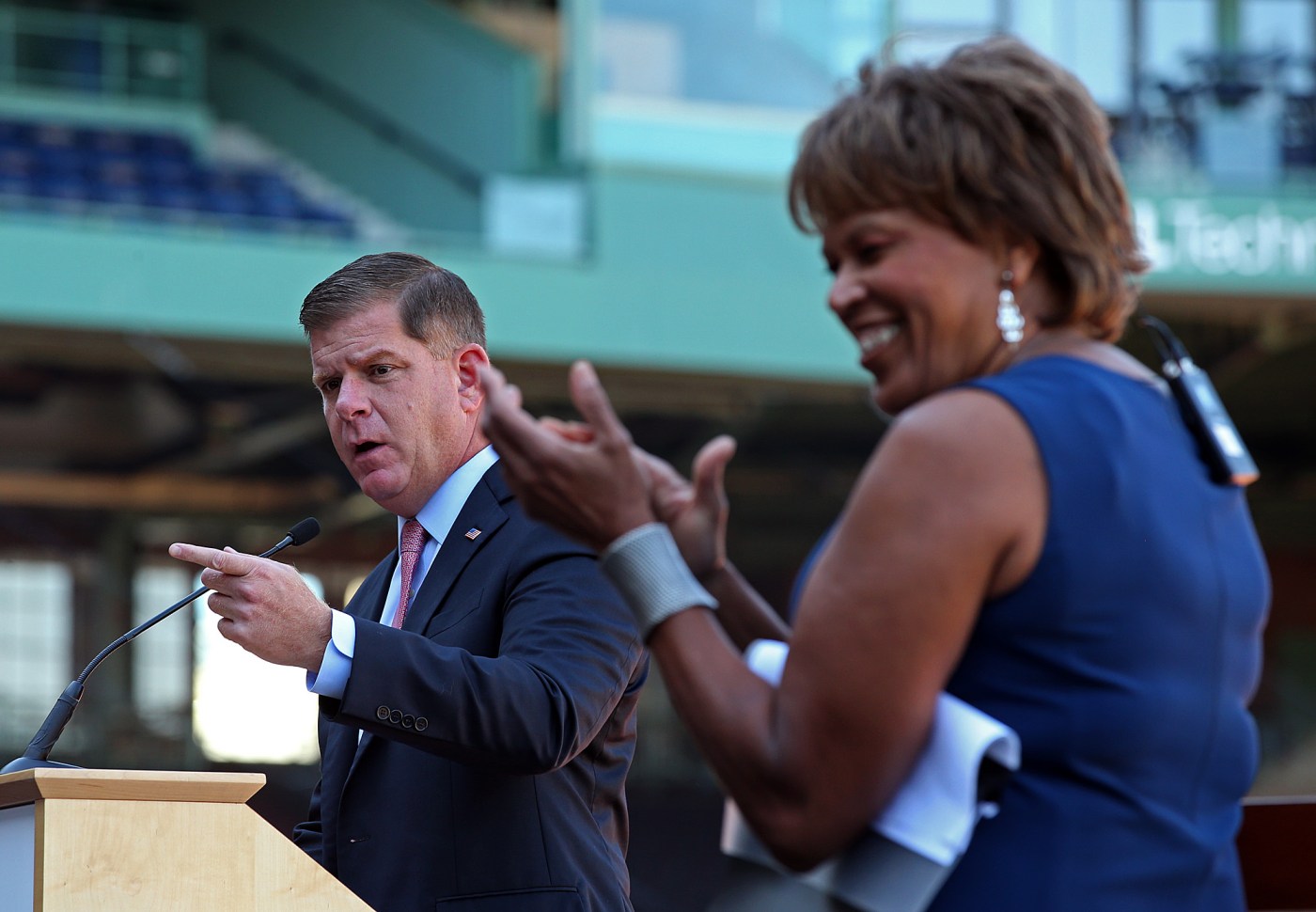
Gaskin: Boston needs a DEI plan, stat
When Mayor Marty Walsh was assembling his Imagine Boston 2030 strategic plan for the city, I wrote and spoke to him about making inclusion a key part of it. He agreed and told me to talk to the people working on the plan. I did, but I was told there was no need for a special section focusing on diversity, equity, and inclusion because these elements were already in every aspect of the Imagine Boston 2030 plan.
If you look hard you might see some inferences in the plan, but nothing will jump out at you. Although Mayor Walsh hired Karilyn Crockett as the city’s first chief of equity and signed an executive order to expand opportunities for women- and minority-owned businesses, among other actions, there was never a specific DEI plan, and the city stumbled from one diversity crisis to the next. In a 2017 Northeastern University forum, people pointed out to Walsh the level of discrimination people experience daily in the city. “People are tense for a reason, because in most cases they have experienced something traumatic… and some experience it everyday,” he said. Racism in Boston is real, and while it wasn’t Walsh’s fault, it was his problem. Therefore, he was responsible for doing something about it.
At the time, I spoke to then City Councilor Michelle Wu, who agreed there should be such a plan and added that it should have goals and timelines to promote accountability. Well, now she’s mayor and there still isn’t such a plan.
After the public apology for the wrongs committed by the city in the Charles Stuart case, most agree that more should be done so something like that doesn’t happen again. Perhaps Mayor Wu could announce in her upcoming State of the City address that she is asking all city agencies to produce plans for increasing inclusivity, with goals and timelines. It would be great to know what she plans to achieve by the end of her first term. Ideally, the city would call upon Dr. Atyia Martin, who served as Boston’s first chief resilience officer and authored the city’s resilience strategy, to work with the agency heads on developing their plans. It would be great to see the blueprints for every agency that were developed with the lens of equity.
Imagine Boston 2030 focused on 12 themes: Waterfront City, Green City, Connected City, Climate Ready City, Entrepreneurial City, Programmable City, Creative City, Expanded Neighborhoods, Thriving Downtown, Neighborhoods That Are Affordable, Economically Mobile Residents, and Healthy Residents. Not included was a future city where people’s differences would not only be accepted but embraced and celebrated. That oversight has created an opportunity for Mayor Wu to address.
What makes a city livable is not only the cost and accessibility of housing, transportation, parks, and greenspaces but how comfortable and accepted people feel. A city may own millions of dollars worth of buildings, land, roads, bridges and other infrastructure, but its true assets are its people. Creativity, productivity and acceptance of others are key to the character of a city. If we truly want Boston to be a livable city, then we must make it an inclusive city that is comfortable for everyone who lives here, which means ensuring that citizens feel accepted for who they are.
Imagine Boston in 2030 as a city that celebrates diversity in every arena, including education, health care, housing, policing, business, and economic opportunity. Imagine if we could address disparities in environmental, climate, energy, and spatial justice and promote acceptance of diverse housing and neighborhoods.
We must figure out how to accept, serve, and benefit from people who differ ethnically, culturally, economically, and otherwise.
Boston’s past includes some infamous examples of opposing diversity, such as segregated public housing projects and anti-busing protests. People who come here from around the globe to attend our schools and universities often comment that Boston is a great place to be from but not necessarily a great place to be. Recent elections in the United States and in Europe have exposed deep divisions and hostilities among people of different backgrounds. We can do better.
We need to be intentional in how we ask our city government to provide quality services to all residents and how we expect people to treat each other here. Those who visit from around the world should be treated hospitably when they come to Boston. In the same way, we have to work to make our city greener, we need to work to improve our human relations. We want a city that leads by example. To achieve this objective, we need a plan, just as we’ve created plans to improve transportation, housing, arts, and culture.
Our inclusivity plan must address:
How we treat each other. We can take a lesson from Atlanta’s slogan: “A city too busy to hate.”
How we benefit from and enjoy our differences. Boston’s diverse food, festivals, art, goods, and services all add economic vitality to the city and improve the quality of life here. These differences make Boston a destination for employers, students, and tourists.
How civil servants can provide quality services to all. We must address implicit bias and provide equal access to services and opportunities with measures such as multilingual signage.
Given the levels of antisemitism, Islamophobia, anti-immigrant sentiment, and other types of prejudice that divide us, we need a plan that will help unite us. Boston has plans and initiatives to accomplish many other goals. Now we need a specific initiative to become an inclusive city where everyone feels they belong.
Ed Gaskin is Executive Director of Greater Grove Hall Main Streets and founder of Sunday Celebrations.


